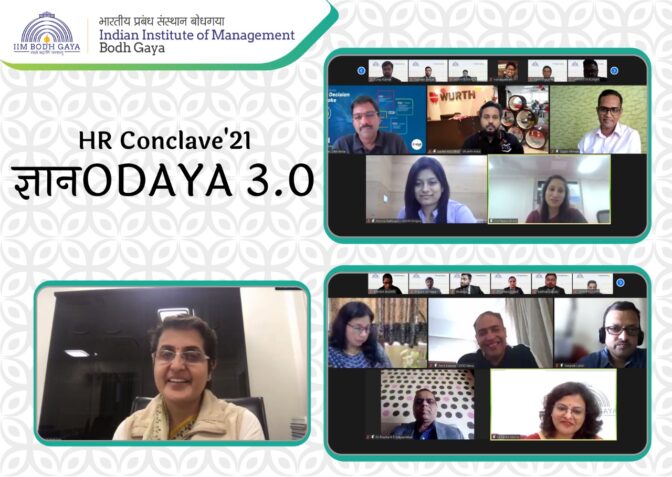It has been almost three months since the Government of India has imposed national wide lockdown to deal with the COVID-19 Pandemic. This was definitely a necessary step in order to keep the number of cases under control and prevent further spread of infection. However, one of the most important issue people are facing these days is difficulty in accepting and handling this social isolation. With the sad and sudden demise of my favourite actor, Sushant Singh Rajput, I wonder why has it become so difficult to identify that a peer or friend is suffering from mental issues.
We already dwell in a busy world, where neighbours do not often have time to check on yourself to see whether you are alive and well. Now, when physical interactions and socializing is restricted, it is almost impossible for anyone to know whether the other person is feeling low or depressed. With the advent of adopting work from home schedule during this lockdown, employees are not getting the physical connection with their colleagues. It is difficult for anyone to know whether the other person is feeling overworked, stressed or depressed.

During the SARS Pandemic, the studies by Wu et al had shown that people who were quarantined during the outbreak suffered from higher levels of depression and anxiety. These people had also reported more alcohol abuse in the upcoming three years. Similarly, this lockdown along with the social distancing measures have also led to many single adults ‘alone’ in their homes. At first, these individuals have shown more productivity by being more immersed in work as most of their social activities are restricted. People have taken to social media proudly displaying their newfound hobbies like cooking, playing musical instruments, writing a blog or uploading dance videos etc. The social media feeds are flooded with screenshots of Zoom calls and Google meets, showing the world that we are still connected despite the physical distance. Soon this hype and excitement started drying down as the lockdown started entering into subsequent phases. People really start missing their social circles, the very opportunity of going out for a walk, morning routines in gym and yoga classes, the quality time with friends, family and colleagues etc. Now, they no longer start seeing this lockdown as a paid holiday but as something which is mandated upon them. This is where the loneliness sets in.
Man is a social animal since time immemorial. They hunted in groups, cooked in groups and ate and celebrated their dinner in groups. Research studies on prisoners on solitary confinement have shown that social isolation had caused them to display more aggressive and unruly behaviour. This was one of the most important reasons for the prison reforms that have taken place. A human being, even if he is an introvert, feels comfort by the presence of another human being close by. This time is definitely a great time for families to form a close bond; however, it is definitely one of the worst times for individuals leaving alone. At this time, it is imperative to stay alone without feeling lonely. With no one else to check on you, it is mandatory that you follow few check-points to see whether you are advancing towards depression or suicidal ideation or not. Early diagnosis and timely intervention may prevent untoward incidents like the one we witnessed today.
1. Acknowledge any change in your behaviour and try to understand the reasons behind such changes:
A) Are you feeling a sense of emptiness or lack of motivation to get up and log-in for work?
B) Are you feeling excessive restlessness or procrastination and feel like over-engaging in leisure activities like Binge watching Netflix and Binge eating etc.
C) Are you having sleep problems like insomnia or hypersomnia?
D) Are you drawn to substance abuse? Have you started drinking more alcohol or smoking more cigarettes?
E) Have you lost motivation to interact virtually with peers and feel the need to alienate yourself from others?
If the answer to any of the question is ‘Yes’, then you may have landed in a state of helplessness and feel no control over your life. Challenge these ideas and refute negative notions. Recognize patterns of negative thoughts arising in your mind and engage in self-talk.
2. Watch over what you feed to your mind
Since we are spending most of our times online, it is quite natural that we are constantly checking the COVID 19 updates, death news and chaotic situations outside. One thing you need to realise that your constant checking of the data and statistics is not going to flatten the curve. This pandemic will take time to stabilize. Your worrying about the current situation is not going to make matters easy. Information you consume affect your subconscious brain. Remember to engage in reading positive news and inspiring articles. You can start following the hobbies people have started doing during the lockdown.
3. Keep your brain busy without exhausting
Engage in activities that give you a sense of control over yourself. If you can successfully execute a task, you get the feeling that ‘If I can do this, I can do anything.’ Research shows that engaging in creative art projects, building and constructive activities reduces stress. You can use this time to upskill yourself. Many free online courses have been introduced by several platforms which can keep you busy, help you earn certifications and decorate your resume a bit more. Despite busy work commitments, you need to extract time for yourself and engage in things that interest you.
4. Find quality virtual company instead of quantity
You may not have an ocean of friends. You may just have a few work colleagues. You may be a free-lancer, interacting just with your clients and vendors. Irrespective of your current social quotient or networking ability, you can still depend on like-minded people like you and engage in informal conversations. Remember, everyone is facing a similar situation like you. There is no awkwardness in asking a few non-work related questions and starting small conversations with peers and colleagues. If you are a manager, you can often drop a casual call to check on whether your teammates are doing well or not. If you are a junior, you can drop a few calls or messages to seniors and peers asking about their wellbeing. If you haven’t spoken to school friends or college friends for long, it is an apt opportunity now to reach out to them. Plan for a virtual reunion and start talking. You can play online games and share motivational videos with one another. Do not fear to interrupt them in their leisure hours and rekindling with them. Use this as an opportunity to enhance your networking ability. Build new relationships. You will definitely find several other loners like you via social media. Try interacting with them. They will also receive some emotional support from you.
5. Be altruistic
Often the sense of seeing someone else happy gives you an innate sense of happiness. Reach out to people who have lost their jobs and sources of income. The smile and sense of gratitude on the maid’s face on receiving two months salary with a little bonus may brighten up your day. Even in non-monetary aspects, you can guide and inspire people. You can connect with your juniors and students joining your alma-mater this year and guide them with your knowledge. You can teach new skills to people using social media channels. You can help someone find a job by using your contacts. Small acts like picking up groceries for your elderly neighbours, distributing food and medicine packets for the under-privileged etc can help you feel fulfilled and connected with this world.
6. Be a child
It is said that childhood is the best phase in anyone’s life. A child is without any worries and feels that he or she is always secure in the arms of the parents. Be a child and engage in childish activities. Revisit your happier memories like the mischiefs in schools etc. Engage in endorphin-releasing activities like yoga and meditation. Watch comedy shows and try laughing out loud for a few minutes daily. Do the mirror game-stand in front of the mirror and make funny faces. You will soon forget most of your worries. Do not hold back emotions. Laugh, cry, shout aloud when alone. It will help you release the stress hormones and feel lighter.
Problems are a part and parcel in everyone’s life. These problems challenge us to introspect, improvise and develop better solutions. It is high time we do not consider mental issues as stigma and give it importance. It is important to TALK IT OUT. Sushant Singh Rajput’s life has shown that you may be a top performer, financially stable and at the receiving end of all fame and stardom, still, you can be LONELY, DEPRESSED AND SAD. No one is immune to depression. A seemingly cheerful neighbour may be secretly suffering inside. It is important to converse. Show that you are there for others and remember someone out there will be always there for you. We will rise in this together!!!
Tags: covid19 mental health mindYou might like reading:

IMM Comics: Are female bosses better managers?
Our MBA guy gets the same client’s order which he and his former boss had messed up once. Is the result much different this time? lets find out. Tags: boss MBA office life

Gyandoya 3.0 – HR Conclave ‘21, IIM Bodh Gaya
The Indian Institute of Management, Bodh Gaya successfully conducted its annual HR-Conclave ‘Gyanodaya 3.0’ on 27th November, 2021. The conclave provided a platform for the future leaders to interact with business experts and acquire valuable insights from their experiences and expertise and be ready for the corporate world. The event shed light on the evolution of the HR domain over the […]































